
Our graduates have gone on to many different professions or academic pursuits, such as: professional schools (ie. dentristry, law, medicine), police agencies (eg. RCMP, Peel Police), lab work (eg. Centre of Forensic Sciences), and academic teaching/research. Below are some interviews with our graduates.
Want to be a part of the UTM Forensic Science Alumni Project?
Contact Murray Clayton for more information on how you can be a part of inspiring young scientists!
 | 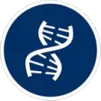 | 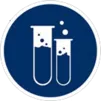 |  | 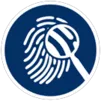 |
|---|---|---|---|---|
| Forensic Anthropology | Forensic Biology | Forensic Chemistry | Forensic Psychology | Forensic Science Major |
 | 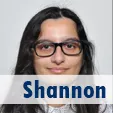 | 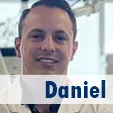 |  |  |
 |  | 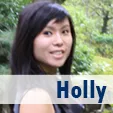 | 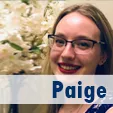 |  |
 |  | 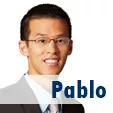 |  | 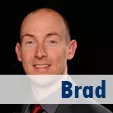 |
 | 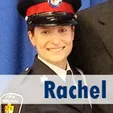 | 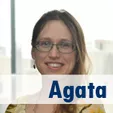 | 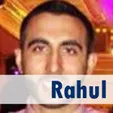 |  |
 | 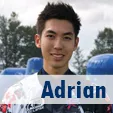 |  |
|  |
 |  |  |
|  |
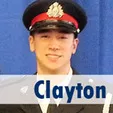 | 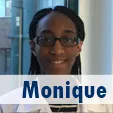 | 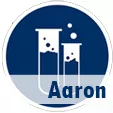 |
| 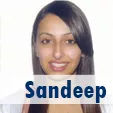 |
|
|
|
|
 | |||||||||
|---|---|---|---|---|---|---|---|---|---|
| Go back |  |  |  |  | |||||
Thu Le, MScFSc. Candidate, HBSc.
Specialty in Forensic Anthropology,
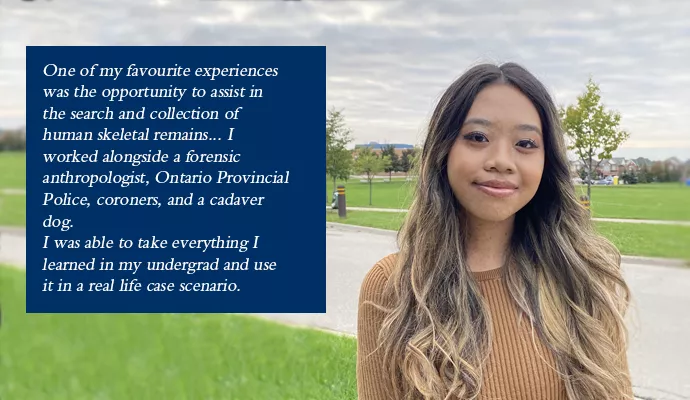
Thu is currently a master's student at the University of Strathclyde in Glasgow, Scotland.
Why did you choose to pursue forensic science?
From a young age, I had a profound interest in problem solving. As I grew older this interest continued to be a driving force in the decision of my education and career. What appeals to me most is the dynamic nature of this field, where no two days are alike. Each case and every piece of evidence necessitate the application of distinct critical thinking skills to determine the appropriate techniques and instruments for drawing conclusions. My interests for problem-solving, coupled with the dynamic nature of forensic science, propels my commitment to a field where each day presents unique challenges, demanding the application of diverse critical thinking skills to solve the complexities of investigations.
What have been some of your favourite experiences as a member of the forensic community?
One of my favourite experiences as a member of the forensic community is when I had the opportunity to assist in the search and collection of human skeletal remains. During this time, I worked alongside a forensic anthropologist, Ontario Provincial Police, coroners, and a cadaver dog. I was able to take everything I learned in my undergrad and use it in a real life case scenario.
What is your fondest memory of your UofT experience?
My fondest memory of my UofT experience is my time as an executive member of the IVNVI Forensics Society. During my time in the society, I had the amazing opportunities to network with many individuals in the forensic science community and orchestrate a variety of engaging events specifically designed for students in my program.
Any words of advice for up and coming FSc students:
One of the biggest pieces of advice I have for coming forensic science students is to network as early as possible. Building a network opens doors to valuable connections, mentorships, and opportunities. By engaging with peers, professors, and professionals in your field of interest, you not only gain insights into the industry but also establish a foundation for future collaborations and career advancements. Networking is a continuous process, and the relationships cultivated early on can play a pivotal role in shaping your future.
Andrew Mazurek, MB, BCh, BAO (Hons), HBSc.
Specialty in Forensic Anthropology, Biology Minor
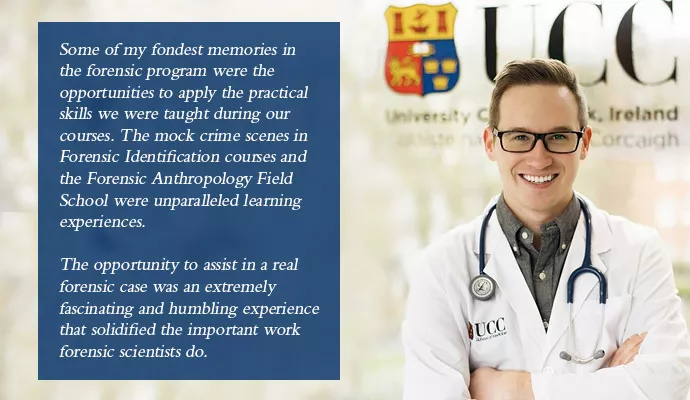
Andrew is currently an Anatomical Pathology Resident at Queen's University.
Why did you choose to pursue forensic science?
I knew from a young age that I wanted to pursue to career in a science-related field, however I couldn't see myself sitting in a laboratory for my entire career. I wanted to utilize the scientific process in a more applied, practical manner. While I always saw medicine as an option to pursue such a career, the forensic science program provided another avenue to explore a discipline of applied science while completing the prerequisites for medical school. Just as doctors are able to specialize in numerous fields according to their interests and skills, a wide range of forensic specialists are required to assist the judicial system. In forensic science, I saw an exciting opportunity to approach varied and interesting casework through core scientific principles, and to interact with a multitude of specialists in the search for the truth.
What have been some of your favourite experiences as a member of the forensic community?
Some of my fondest memories in the forensic program were the opportunities to apply the practical skills we were taught during our courses. The mock crime scenes in Forensic Identification courses and the Forensic Anthropology Field School were unparalleled learning experiences where I not only gained confidence in my crime scene processing skills but was also challenged become a better communicator and collaborator.
The opportunity to assist in a real forensic anthropology case was an extremely fascinating and humbling experience that solidified the important work forensic scientists do. I was also extremely proud when I was able to help facilitate such learning experiences for other students as a Teaching Assistant in various forensic science courses.
What is your fondest memory of your UofT experience?
My fondest memories of my time at UTM are the amazing relationships fostered with my fellow students and with the amazing teaching staff - these are the memories that persist rather than the thoughts of exam stresses or the all-nighters pulled. I met some of my closest friends during my time here.
Any words of advice for up and coming FSc students:
Apply Yourself! Get Involved! There are so many opportunities on campus that go beyond the classes you have, and the forensic department is always a great place to start. Volunteering in the forensic anthropology laboratory and during forensic outreach events were amazing opportunities that allowed me to grow as a person and as a professional.
The research internship is also a fantastic opportunity; I have applied the research skills I developed in this course to future research projects. It also provides you with an opportunity to further explore your interests in a particular discipline of forensic science. It was during my internship that I discovered forensic pathology was the ideal career for me to merge my passion for medicine and forensic science.
Above all, take care of yourself!
Andrea Chan, MD, MA, HBSc.
Specialty in Forensic Anthropology, Psychology Minor
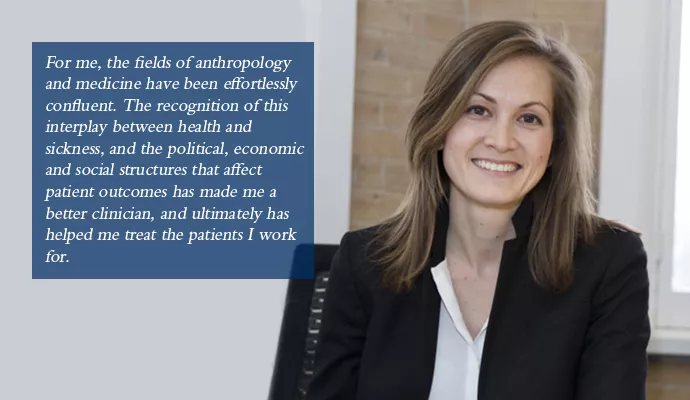
"I am a 2005 graduate from the University of Mississauga’s Forensic Science and Anthropology Departments. After graduating from UTM, I completed my Masters’ degree in Forensic and Dental Anthropology under the supervision of Dr. Shelley Saunders at McMaster University. At McMaster, I had a privilege of meeting Dr. Dennis Willms and was introduced to the field of medical anthropology. I worked for his charitable organization Salama SHIELD Foundation (SSF), which focuses on implementing sustainable behavior change solutions through participatory action in the context of the HIV/AIDS epidemic in Uganda. Medical anthropology drew me to the field of medicine. For me, the fields of anthropology and medicine have been effortlessly confluent. The recognition of this interplay between health and sickness, and the political, economic and social structures that affect patient outcomes has made me a better clinician, and ultimately has helped me treat the patients I work for. After my time with SSF, I completed my medical degree and my orthopaedic surgery residency training at the University of Toronto. Currently, I am finishing up my sub-specialty hand and upper extremity fellowship training in London Ontario at the Roth|McFarlane Hand and Upper Limb Centre, and will complement this with pediatric upper extremity fellowship training at Cincinnati Children’s Hospital."
Caitlin Pakosh, HBSc., JD.
Specialty in Forensic Anthropology, Biology Minor
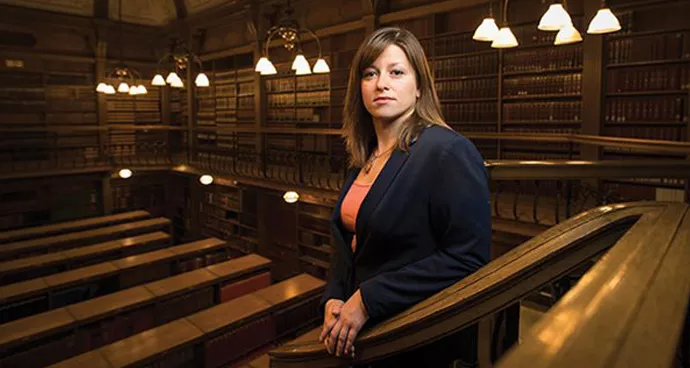
Forensic Science & The Law In Canada professor and alum Caitlin Pakosh.
Caitlin Pakosh is an Assistant Crown Attorney in Hamilton with experience researching and writing about the intersection between forensic science and criminal law, most notably in her award-winning book featuring thirty-three expert contributors, “The Lawyer’s Guide to the Forensic Sciences” (Irwin Law, 2016). Before joining the Ministry of the Attorney General, Caitlin opened her own criminal defence firm after working for several years at Innocence Canada as its Senior Staff Lawyer. Caitlin was called to the Bar in Ontario in June 2012 after receiving her law degree from the University of Calgary in 2011. She is a proud graduate of UTM’s forensic science program, having graduated in 2008 specializing in forensic anthropology with a minor in biology.
Daniella Stoewner, HBSc.
Specialty in Forensic Anthropology
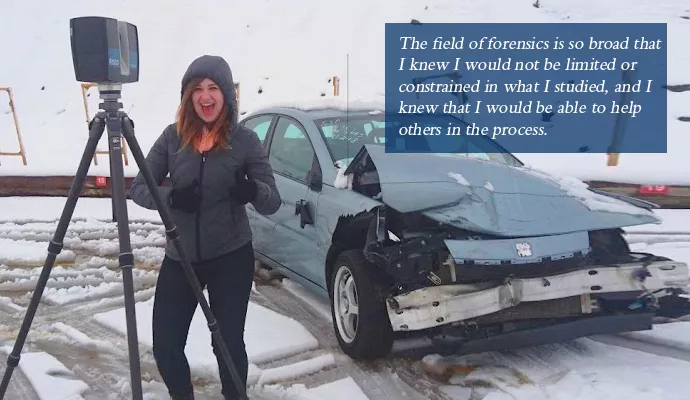
Daniella on scene with FARO 3D capture technology.
Daniella is now a 3D Forensic Technologist at ai2-3D Forensics based in Vaughan, Ontario. The company is contracted to assist in casework by reconstructing criminal events in 3D for forensic scientists, law enforcement agencies, legal professionals, and other relevant bodies across North America. They also provide training and support for the use of laser scanners, hand scanners, photogrammetry, and related software. ai2-3D is also involved with ongoing research in areas such as laser scanning technology, bullet trajectory analysis, bloodstain pattern analysis, and forensic pattern analysis.
Why did you choose to pursue forensic science?
My passion for science and its applicability in creating a better society. The field of forensics is so broad that I knew I would not be limited or constrained in what I studied, and I knew that I would be able to help others in the process.
I was fortunate enough to be given the opportunity to come back to UTM to co-teach the fourth year FSC406 course, Introduction to 3D Crime Scene Mapping & Reconstruction. I had a wonderful experience lecturing and designing practical assignments for the students to learn. I’d love to come back and teach again!
What have been some of your favourite experiences as a member of the forensic community?
Discovering things through research and casework that were previously unknown to others. We make discoveries and learn something new everyday. As someone who thoroughly enjoyed my university career, being able to continue my education during work hours has been extremely rewarding. I’ve also been given the amazing opportunity to travel for research, training, conferences, and casework. Everyday is different!
What is your fondest memory of your UofT experience?
Completing the Forensic Anthropology field school and being able to assist in real casework shortly thereafter. As an undergraduate, assisting on a real case was a dream come true.
Any words of advice for up and coming FSc students?
Get involved! Network! Stay active in the forensic community! The worldwide forensic science community is relatively small – take advantage of the ability to make lasting connections by assisting in research, attending conferences, and volunteering whenever possible.
Jessica Lam, HBSc., MSc.
Specialty in Forensic Anthropology and Biology
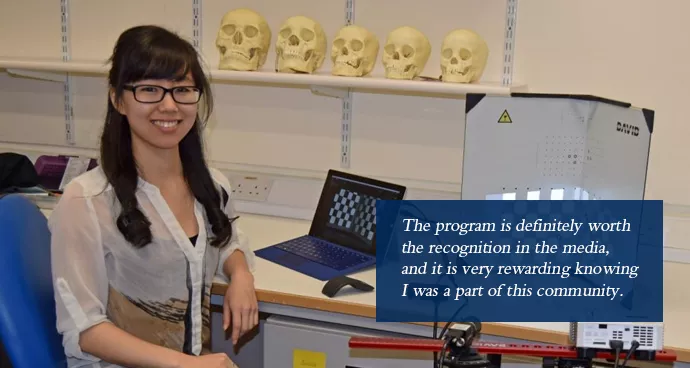
Jessica Lam standing in the Terrence Donnelly Health Sciences Complex.
Jessica Lam graduated from the UTM Forensic Science program in 2012 with an Honour’s Bachelor of Science degree in forensic anthropology and biology. During the last three years of her undergraduate studies, Jessica was the President of the UTM Forensics Society which she formally established as a recognized Academic Society by the UTM Student Union (UTMSU) in 2010.
In 2013, Jessica continued her studies at UTM and completed a Master of Science degree in Anthropology a year later, under the supervision of Dr. Tracy Rogers. Jessica’s research projects during this time combined skeletal age estimation methods with various 3D technologies to facilitate the analytical process. Throughout her studies, Jessica has worked in Greece, Portugal, and Japan for research and academic purposes. Jessica has also been active in forensic casework as a field technician across southern Ontario since 2011.
Recently, Jessica was one of ten successful candidates in the world who were accepted into the INTREPID Forensics program at the University of Leicester (United Kingdom). There, she will be fulfilling a fully-funded PhD researcher position in Engineering/Pathology under Dr. Sarah Hainsworth and Dr. Guy Rutty. Although Jessica will be based out of the University of Leicester, she will also be undergoing a research secondment at the University of Padova in Italy. Jessica will begin her three-year PhD at the University of Leicester in January 2015.
Jessica was the Public Outreach Administrator for the UTM Forensic Science program from 2012 – 2014, and also completed a work-study term at the Royal Ontario Museum in 2014. She assisted with the 24th Educational Training Conference hosted by the Toronto Police Services, and was involved with the conference organization committee for the 2014 Canadian Identification Society Conference. Jessica has also worked as a piano teacher for eight years.
Click here to read more about Jessica's undergraduate and graduate experience.
Follow Jessica's personal INTREPID journey and experience by clicking here.
 | |||||||||
|---|---|---|---|---|---|---|---|---|---|
| Go back |  |  |  |  | |||||
Victoria Torres, HBSc., MSc.
Forensic Biology Specialist Program
As a Crime Scene Support Technician with the Toronto Police Service, Victoria works to document, collect, preserve, and examine evidence collected from crime scenes such as recovered stolen vehicles and robberies.
Why did you choose to pursue forensic science?
Like many people, I was initially drawn to forensic science because of shows like CSI:NY. The CSI Effect wore off quickly, though, as I did my research early on and learned that reality is nothing like how it's scripted on television. Regardless, I still loved how science is used to find answers for victims, to deliver justice fairly and impartially, and to protect the public. At 12 years old, I knew I wanted to be a part of that.
I chose UTM because the University of Toronto is a world-renowned school with a great faculty backed by decades of workplace experience. The course catalog set up a strong foundation in the general sciences before branching off into more specialized classes after students found their footing. The crime scene house was a selling point in terms of practical learning, ROPs and the capstone courses were great research experience, and a free shuttle to downtown Toronto never hurt!
What have been some of your favourite experiences as a member of the forensic community?
Some of my fondest experiences take place at scenes, when I'm in the middle of a forensic exam. I've overheard some children asking their parents about "the person with the camera". They'll talk about how cool we look, the parents will try and explain what we're doing, and I've even heard a few parents say they could be just like us in the future (which is true!).
My last class before the COVID-19 global shutdown was a FSC302 practical, in which two officers from Toronto Police Forensic Identification Services delivered an amazing presentation on bloodstain pattern analysis. Talk about a way to end the year!
Additionally, as part of my FSC481 research project, I spent a day at the Ontario Police College in Aylmer. While driving out west at dawn (just me, my music, and the open roads), I was struck with a sense of pride knowing I had made it so far as a kid who just fell in love with forensics.
Neither one of those memories, however, beat the numerous late night study sessions with friends. Each of us may have been on our own journeys, but even for a moment, we were all united by stress, assignments, and some impromptu karaoke.
Any words of advice for up and coming FSc students:
When it comes to education, stay passionate! Sometimes school can feel like a burden – there’s no denying it. It can get frustrating but try to remember why you're doing what you're doing. Tap into your curiosity and interest to push through those rough patches.
When it comes to workplace experience, network as much as you can. UTM FSc is blessed with professionals from all forensic industries, and many of them love talking about their field! If you strike up a genuine conversation with them, the instructors and TAs do talk about much more than what's listed on the syllabus.
Finally, look into the OPS Summer Student program. I got my big break after third year as a summer student as a CFS Toxicology lab assistant. I got to live out a dream job, get incredible workplace experience, and make some great friends! Even if you don't get a position, the OPS summer program is great practice for applying and interviewing in a real setting.
Oh! If you can afford to wait, don’t catch the first bus after a lecture. Wait until 20-30 minutes after the hour – it’ll be much less crammed.
Shannon Goel, HBSc., MSc.
Forensic Biology Specialist Program
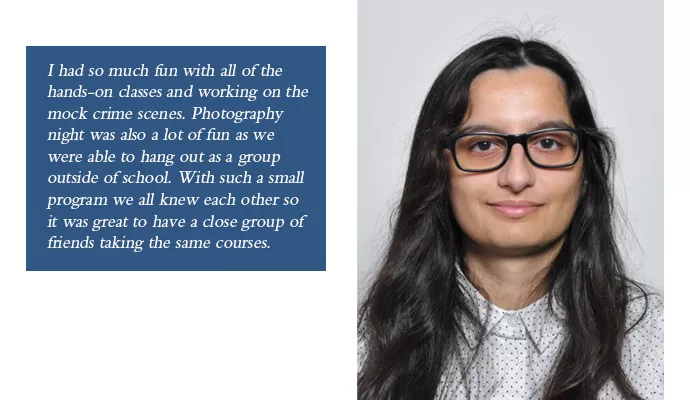
Shannon currently works as a Forensic Identification Assistant with York Regional Police. Her day-to-day involves attending various crime scenes to document, photograph, and collect forensic evidence. She regularly coordinates and communicate with responding officers and investigators to determine the best course of action to secure and process any given scene.
Why did you choose to pursue forensic science?
I was already interested in science and shows like CSI really opened my eyes to the world of forensic science. Being able to utilize various scientific fields to help solve criminal investigations seemed like such an interesting and rewarding career. The Holly Jones case really solidified my decision to pursue a career in forensic science.
What have been some of your favourite experiences as a member of the forensic community?
Some of my best UTM memories were taking the forensic identification classes in my third year. I had so much fun with all of the hands-on classes and working on the mock crime scenes. Photography night was also a lot of fun as we were able to hang out as a group outside of school. With such a small program we all knew each other so it was great to have a close group of friends taking the same courses.
Any words of advice for up and coming FSc students:
It’s a tough field to find employment so networking is always great. Internships at police agencies or the CFS/OFPS are a great way to get your foot in the door. If forensic science is your passion then don’t give up. It took me a few years out of school to get a job in the field so keep applying and ask for feedback whenever possible.
Nina Harnarine, HBSc.
Forensic Biology Specialist Program
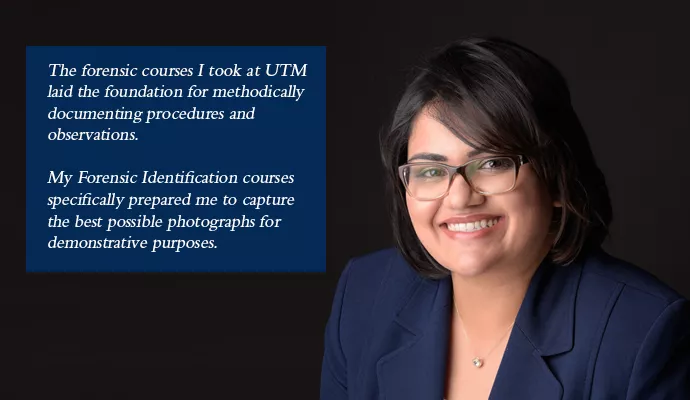
Nina is a Forensic Document Examiner with Forensic Examiners Inc., examining and comparing writing, signatures, printing, and initials. In addition, She identifies mechanical impressions and instruments including typewriters, chequewriters, stamps, printers, photocopiers and fax machines. She also completes ink and paper examinations, deciphers and examines indented writing, alterations, erasures and obliterations.
According to Nina, "The forensic courses I took at UTM laid the foundation for methodically documenting procedures and observations. My Forensic Identification courses specifically prepared me to capture the best possible photographs for demonstrative purposes.The Forensic Science Program provided me with a solid foundation to effectively communicate technical scientific information, and honed my research, oral and written communication, critical thinking, and problem-solving skills.
Why did you choose to pursue forensic science?
I have always had an interest in law. My passion for science continued to develop. I decided to combine the two disciplines by pursuing forensic science. In my grade 10 Career Studies class, I was asked to bring in a professional from a career of interest. I knew I wanted my class to learn about Forensic Science through the school I would one day attend – UTM. I worked with administrators at UTM to organize a tour and a lecture by Dr. Tracy Rogers. I thoroughly enjoyed the lecture and decided that my goal would be to pursue Forensic Science at UTM. In 2005, the Pickton case made major headlines and it was interesting to hear about Dr. Rogers’ work on the case. It was also important to me that the program was the first HBSc program in Forensic Science and it was offered at a world-renowned university.
What have been some of your favourite experiences as a member of the forensic community?
Every year I enrolled in the Forensic Science Society and participated in various events. In my senior year, I was the Chair of the Year Representative Committee and volunteered at various events.
I learnt a great deal in my forensic courses. I enjoyed being taught by professionals that had a great deal of knowledge and experience in their fields. I always enjoyed research and I had the opportunity to complete two independent studies. One was related to Earprints and another focused on Single Nucleotide Polymorphisms (SNPs). I enjoyed our Forensic Identification and Crime Scene Reconstruction courses, where we had hands-on experience with crime scene photography, fingerprinting, and tool mark impressions.
The Forensic Entomology course was very memorable. I had the opportunity to bury a rat and observe the decomposition process. We had to visit the site regularly and document observations, including temperature and insect activity. I appreciated the hands-on experience.
I completed my Forensic Internship project with York Regional Police. I did my research on various factors that impact the Electrostatic Detection Apparatus (ESDA). I had the privilege to work within a police organization. I had the opportunity to present my research within York Regional Police, at the annual Forensic Science Day, and at various Forensic conferences including the American Academy of Forensic Science and the American Society of Questioned Document Examiners.
I was a Forensic Camp Counselor with Camp U of T for four years. I worked with 9-13 year-old students. I taught the campers through PowerPoint presentations, forensic experiments and activities, such as, serial number restoration, ballistics, toolmark analysis, crime scene photography, and evidence collection. This experience allowed me to further develop my teaching, oral and presentation skills. It was an honour to teach the next generation about forensic science and dispel some of the common misconceptions about the field.
Any words of advice for up and coming FSc students:
I encourage any up and coming FSc students to take all opportunities to network within the forensic community on campus through the forensic society, classes, and the administration. I would also encourage students to network outside of the university by attending conferences and presenting your research. It is great to build a strong network of colleagues within your field.
I also would encourage FSc students to never give up on what you are passionate about. Sometimes we have tunnel vision about what opportunities are out there. Do your own research and ask within your network what opportunities may be available. Work hard and never give up! Alexander Bell said, “When one door closes, another opens; but we often look so long and so regretfully upon the closed door that we do not see the one which has opened for us.” Continue to knock on doors in order to pursue your passion!
Any other accomplishments or interesting information you'd like to share:
In April, 2019, I was a recipient of the American Academy of Forensic Science’s Maureen Casey Owens Award for Best Paper A Comparative Study of Generation Y and Generation Z Signatures, which was presented at the AAFS 71st Annual Scientific Meeting in Baltimore, MD.
(see https://news.aafs.org/section-news/2019-qd-sections-maureen-casey-owens-award-recipient-announced/)
Monique Johnson, MSc., HBSc.
Specialty in Forensic Biology, Anthropology Minor
 Monique is a Research Technologist at the Hospital for Sick Children (SickKids).
Monique is a Research Technologist at the Hospital for Sick Children (SickKids).
"Although I didn’t study Forensic Anthropology, the socio-cultural and biological anthropology courses I took helped give me a greater understanding of forensic science that helped me during my masters. The ability to have an open mind and holistic views on why people have certain behaviors that stem from their cultural background is very important. Whether it is studying population genetics to determine likelihood ratios useful for DNA testing or being mindful of cultural practices that need consideration before autopsies can be performed. It also brings awareness to how certain socio-economic issues tie in to areas that may experience higher incidents of criminal activity. I enjoyed studying Anthropology as it is a discipline that helps a person understand themselves and the society the live in, relative to the rest of the world. It then allows you to take that understanding to make positive changes in the world around you.
I currently work as Research Technologist in the Department of Pediatric Medicine at SickKids. My team is responsible for diagnostic cancer research looking at various subtypes of brain tumours. We optimize and validate different assays that can be used to detect multiple genetic mutations in solid tumours. My work focuses on low- and high-grade gliomas, but I am also developing a non-invasive liquid biopsy assay for use with CSF and plasma. Although I’m working in cancer research, my degree in Anthropology helped to get me here because it gave me the mind set to think critically about what I’m researching and how the outcome can affect the people around me."
Rachel Rudolf (HBSc. Forensic Biology) and Clayton Asano (HBSc. Forensic Anthropology & Biology)

November 2012 - Rachel Rudolf (left), and Clayton Asano (right) at the convocation ceremony for the Ontario Police College, standing with Brent Walker (middle), a retired forensic identification officer and former UTM instructor.
Rachel graduated from UTM in 2009 with an Honours Bachelor of Science in Forensic Science – Biology Specialist. In 2011 she received her Master’s Degree in Forensic Science from the University of Strathclyde in Glasgow, Scotland. She has worked as a Forensic Identification Assistant with the RCMP, and recently got hired as a Police Constable with York Regional Police. One of Rachel’s future goals is to be part of the Forensic Identification Unit with York Regional Police.
Clayton graduated from UTM in 2011 as a Forensic Anthropology Specialist and Biology Minor. Clayton has returned to UTM since his graduation as an occasional guest speaker for the UTM Forensics Society. He has now been hired by Peel Regional Police.
Adrian Chow, HBSc.
Forensic Biology Specialist, 2012
After completing his degree in forensic biology, Adrian Chow was hired by the Ontario Science Centre for the summer and began his full-time work at the Toronto General Hospital in September, along with a clinical research placement at SickKids Hospital. He plans to take the year off to work before applying to a Master's program in physiotherapy and/or a Doctorate in chiropractic.
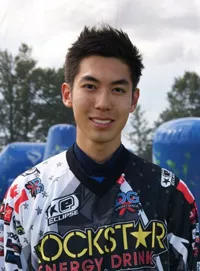
- I always grew up reading 'murder mysteries' and 'whodunit' stories. Ever since I was young, I had an interest in piecing together different clues to solve the crime and to catch the culprit. My dream occupation was always to become a detective when I grew up.
- Not many universities in Canada offer a forensic science program. I chose UTM because their forensic science program was the first to be established in Canada, thus had a long standing reputation behind it. The forensic science program at UTM also has great internship placement opportunities, where fourth year students are placed with a forensic agency to perform research in one of the many forensic related disciplinary areas.
- I believe that my degree in forensic science has benefitted me because I have both learned and experienced a lot in regards to the forensic world, whether it is through lectures or hands-on laboratory experiences. The professors and lecturers all are well versed in this area and are extremely knowledgeable and insightful. Although I am no longer pursuing forensic science as a career, the courses I have taken still allow me to pursue a career in healthcare.
- The most valuable aspect of my undergraduate career was the social interaction with my peers. Throughout my four years at UTM, I was part of the Erindale College Special Response Team (ECSpeRT). Trained as medical first responders, we provided first aid coverage for the members of the campus, as well as weekend events. I got to meet a lot of new people outside my program as well as learn a lot of other things. In my last year I was also part of the Forensic Society (IVNVI). There we helped introduced peers to the world of forensic science. We hosted charity events and went out for socials.
- All the faculty and instructors were extremely knowledgeable, approachable and insightful. They all possess experiences in the forensic world and each have a different background. We have been taught by police officers, pathologists, anthropologists, entomologists, toxicologists, engineers, and psychologists, each bringing their own knowledge and experiences into the lectures.
- I would highly recommend this program to any students interested in the forensic science field. You do not necessarily have to pursue a career in forensics in order to enrol in the program. The courses you take will both be broad and specific in regards to the forensic context, thus this degree will allow you to open many doors, avenues and allow you to pursue many different career paths.
Cherry Pun, HBSc.
Forensic Biology Specialist, 2012
Cherry Pun completed her undergraduate degree as a forensic biology specialist, and was employed shortly thereafter by the Ontario Forensic Pathology Service. She will be attending medical school at the University of Queensland, Australia, in January 2013 and hopes to return to Canada to receive specialized medical training in forensic pathology.
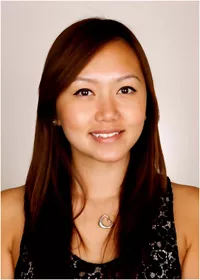
- My passion in science rooted in high school and grew as I took biology courses in the higher grades. When I thought of what I would do when I grew up, I looked up all the possible types of scientific careers and knew I didn't want to just work with "boring" science. That's when I looked into the world of forensics and realized that this is where I could use my scientific knowledge in the coolest way possible.
- The forensic science program at UTM seemed to have the best reputation in Ontario and is housed within one of the top universities in Canada. Knowing that UTM had numerous ties to the professional field in forensic science, with professors and lecturers who are active in the field, I felt that this institution would give me the best education and network ties needed for success. The internship opportunity also appeared promising in providing valuable research and work experience, which is rather lacking in many other university programs.
- My undergraduate degree in forensic science has been beneficial, not only because it taught me the skills and principles related to all areas of forensic science as well as science in general, but it has also taught me a way of thinking - a methodology in solving problems outside of the university walls. These comprehensive skills have provided me with working knowledge required in my dream career and it also led me to make better decisions in life.
- I believe the most valuable aspect of my undergraduate career is the ability to interact with professors who play active roles in the forensic science field. Through communicating with lecturers, professors, and teaching assistants I was able to learn more about the different areas in forensic science and the professionalism bounded to the field. It allows you to find out what the current practice in the field is and what opportunities are currently available. Sometimes knowing more about the field may make you feel repelled, but that is perhaps more valuable than not knowing what you are signing up for.
- The faculty at UTM when I was a student there were very friendly and approachable. I found that most of the professors and lecturers were willing to share their experiences with you and help you with academics as well as planning your career. However, I do find that there is a lack of full-time faculty in all areas of forensic science, which is needed to improve the research arena in forensic science. There also seems to be a lack of progression in the forensic science courses. Most of the specialized courses are offered as a single course only and often times these courses are condensed and many topics are only brushed upon.
- As someone who set out to pursue a career in forensic science, I am very glad that this program has confirmed my passion in life - though this may not be the case for most individuals. There were definitely times where I wanted to give up on forensic science, but it seems as though when you're meant to do something, you'll eventually find your way there.
 | |||||||||
|---|---|---|---|---|---|---|---|---|---|
| Go back |  |  |  |  | |||||
Daniel Vaccarello, HBSc., PhD.
Forensic Chemistry (2011)
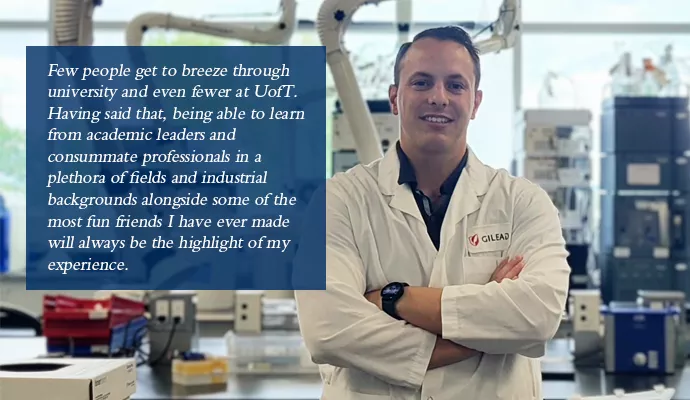
As a Research Scientist for Gilead Sciences’ analytical operations group, Daniel has been responsible for project management for drugs at all phases of development. He has developed and validated techniques using UPLC, XRPD, GC-FID, ICP-MS, Karl Fischer titration, NMR, and mass spectrometry for both routine support of his process development counterparts as well as for release of drug compounds that will go for clinical trials and medicines. Supporting drug programs that help those affected by HIV, hepatitis, inflammatory diseases, cancer, as well as COVID has been both rewarding and has allowed him to collaborate with many talented scientists from different backgrounds.
Why did you choose to pursue forensic science?
Being a scientist was always a career goal. I loved the aspect of using scientific knowledge to solve a problem and forensic science has a unique premise of using the application of science towards finding solutions in solving crimes. Around the time I was in high school, the Pickton case and how the forensic science community had been involved is what ultimately swayed my push to pursue it.
What have been some of your favourite experiences as a member of the forensic community?
I enjoyed the perception shift from the old- “Forensic science? You mean like CSI?” to where it is now. The well-established community leaders and scientific principle studies took the limelight shed from Hollywood TV and used the momentum to push the field as a whole. I enjoyed learning how diverse of a program forensic science could be with the vast array of lectures. I had always enjoyed learning, but the FSc program was my first REAL foray into how vast the scientific community extended. My 4th year internship with the Office of the Fire Marshall opened my eyes to practical applications of different types of detectors for use in investigations, also to be able to take part in a full-scale burn test investigation was an experience I won’t easily forget.
What is your fondest memory of your UofT experience?
The student experience as a whole. Few people get to breeze through university and even fewer at UofT. Having said that, being able to learn from academic leaders and consummate professionals in a plethora of fields and industrial backgrounds alongside some of the most fun friends I have ever made will always be the highlight of my experience. Whether it be studying for exams, or blowing off steam at the pub, UTM hosts some of the most memorable student experiences I have had even among friends and colleagues from other universities.
Any words of advice for up and coming FSc students:
The best advice I have is to not hyper-focus on just one small area of study. The FSc program offers a lot of different lectures in FSC 239 that highlight many unique aspects of the field; if one subject piques your interest, follow up. There are plenty of opportunities to use the tools you have learned in the FSc program and apply them outward, so don’t think you are stuck with what you thought you wanted in high school. Being passive in your future and not putting the right amount of research into where you want to go can lead to selection anxiety, so preparedness is essential, but so is the fluidity to determine where you find yourself and your skills best suited. Reevaluating your goals frequently allows you to see potential that may not have existed in your previous plan.
Holly Lee, HBSc., PhD.
Forensic Chemistry Specialist Program
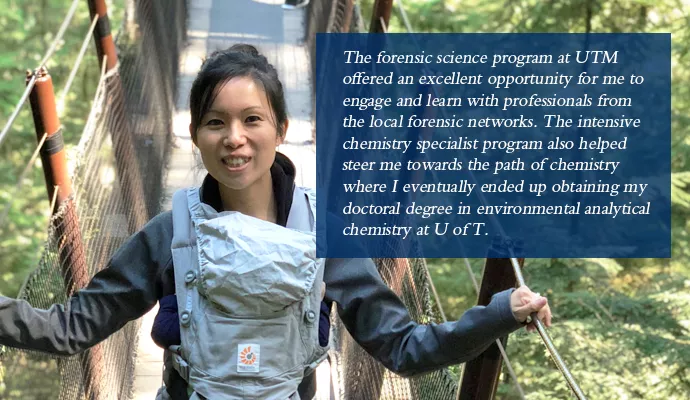
As an Applications Scientist in product development at SCIEX, Holly is responsible for developing, validating, and launching new hardware and software products in mass spectrometry technology to aid in routine and complex analysis. This work involves collaborating with research and development teams, as well as reaching out to the market areas that they support, such as pharmaceutical, food and environmental testing, forensic toxicology, and clinical research and diagnostics, to identify and address the needs of their customers.
Why did you choose to pursue forensic science?
In high school, I have always been interested in chemistry, biology, and physics and I always knew I wanted to pursue a science-based career with a strong purpose. Forensic science was the perfect marriage of using science to objectively diagnose a crime scene.
What have been some of your favourite experiences as a member of the forensic community?
The forensic science program at UTM offered an excellent opportunity for me to engage and learn with professionals from the local forensic networks (e.g. guest lecturers from the Centre of Forensic Sciences (CFS), 4th year internship at the CFS, firearms training course, etc.). The intensive chemistry specialist program also helped steer me towards the path of chemistry where I eventually ended up obtaining my doctoral degree in environmental analytical chemistry at U of T.
One of my favourite experiences in the program was my 4th year internship working in the Firearms and Toolmarks section at the CFS. At that point in time, I already knew I was going to pursue a graduate degree in chemistry, so I decided to do something radically different by choosing to work in the firearms section where I was given the opportunity to work on a research project studying trigger pull forces, which culminated my very first publication.
What is your fondest memory of your UofT experience?
I will always remember the lasting friendships I made from my undergraduate and graduate experiences at U of T. They say misery loves company and the highs and lows of studying and working together in the library and labs really bring people together! I still keep in close contact with a lot of these friends either at casual gatherings or happy occasions like weddings, and some of them have become colleagues that I work with through collaborations.
One of my fondest memories at U of T was the summer I spent doing research in Bonn, Germany as part of the DAAD research scholarship program. Living and working abroad for the first time in my life was both exhilarating and terrifying at times, but the experience to travel and work with research professionals in a different part of the world was enriching and the rarity of such an opportunity made me appreciate how much U of T invests in broadening the horizon for their students.
Any words of advice for up and coming FSc students:
While forensic science offers many interesting opportunities for employment, the field is highly competitive and often narrow in terms of job prospects. My advice for upcoming FSc students is to make use of your current resources at the university and get involved with your network. Join IVNVI, inquire with your professors or lecturers for potential research and internship opportunities, apply for research scholarships like NSERC and DAAD, take additional training courses like firearms training or other forensic-related activities offered by IVNVI, etc.
It is also okay even if you end up astray from your forensic aspirations. I applied to the forensics program under the mindset that I would eventually work as a forensic toxicologist in a lab like the CFS and I ended up completely switching gears in my PhD and turned my interest towards environmental chemistry. The more you broaden your network and get involved in different opportunities during undergrad, the more transferable your skills and qualifications would be for a wider career scope.
Any other accomplishments or interesting information you'd like to share:
After my PhD at U of T, I worked as a Senior Analytical Technologist at the Ontario Ministry of the Environment and Climate Change for three years where I was responsible for analyzing emerging organic contaminants in the environment. My experience as a long-time user of liquid chromatography and mass spectrometry instruments was what appealed to my current employer and I now work as an application scientist in product development at SCIEX.
Pablo Tseng, HBSc., M.Sc., J.D.
Forensic Chemistry Specialist Program
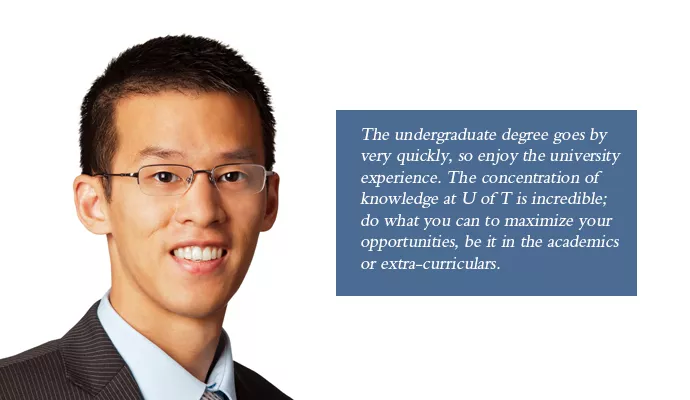
Pablo is currently an Intellectual Property Lawyer, Patent Agent, and Trademark Agent. In a nutshell, he assists clients in acquiring and protecting intellectual property assets and enforcing their rights in those assets.
Why did you choose to pursue forensic science?
I was looking for a program that blended two interests of mine: law enforcement and chemistry. The forensic science program was an appropriate fit.
What is your fondest memory of your UofT experience?
My fondest memories of the UofT experience include the camaraderie that I shared with my friends in the program, and the internship experience in my final year.
Any words of advice for up and coming FSc students:
The undergraduate degree goes by very quickly, so enjoy the university experience. The concentration of knowledge at UofT is incredible; do what you can to maximize your opportunities at UofT, be it in the academics or extra-curriculars.
While you may not ultimately end up working in forensic science, you will likely still be able to leverage the knowledge you will have gained through this program in whatever career path you choose.
Navina Lotay, HBSc.
Forensic Chemistry, Minor in Biology
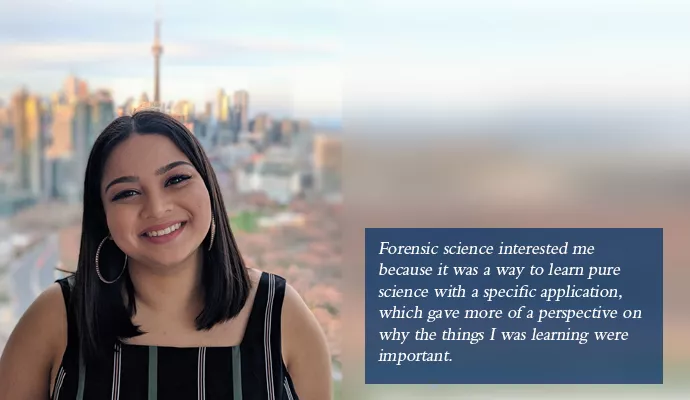
Navina is currently a masters student at U of T, pursuing her MSc in analytical chemistry. Her research involves using acoustic wave devices and a dual protein system to detect lysophosphatidic acid, a biomarker for ovarian cancer. Ideally, if this technology works, it could be used as an early detection method for ovarian cancer. Ovarian cancer is difficult to diagnose due to the commonality of its symptoms, and early detection is critical to patient survival.
Why did you choose to pursue forensic science?
I actually didn’t know I wanted to pursue forensics at first. In grade 12 I had no idea what I wanted to do, and actually applied to a variety of programs at eight (8!!) different schools. The programs I applied to were both pure science and application driven things like forensics. I recall falling in love with the UTM campus when I visited, but still not knowing what I wanted to do in university or where I wanted to go. My acceptance letter to the forensics program was the last one I received, and as soon as I got it I realized it was the one I had been waiting for and the one I was most excited about. I think forensics especially appealed to me because it was a clear way to use science to serve the community.
I’ve always been better at things that involve direct application. Forensic science interested me because it was a way to learn pure science with a specific application, which gave more of a perspective on why the things I was learning were important. With a general chemistry program, I was worried that the concepts would be very broad and abstract, and therefore harder to wrap my head around. Having a specific purpose really focused my learning and gave me a context in which to frame these slightly abstract concepts. I also loved that the program wasn’t so narrow that I was limited in my options if I decided later on that I didn’t want to continue in forensics. I was able to pursue something I enjoyed at the time, experience things I otherwise wouldn’t have (like crime scene documentation and evidence testing), and yet my degree still gave me all the background knowledge to pursue graduate school in a pure science field.
What have been some of your favourite experiences as a member of the forensic community?
My favourite experience as a member of the forensic community was definitely my summer job working at the Centre of Forensic Sciences as a lab assistant in the chemistry section. It gave me real exposure into what working in a forensic lab would be like and reassured me that the path I chose is still something I enjoy and find interesting. I think my favourite part of that summer was helping to prepare and execute the homemade explosives workshop that CFS runs every year. This workshop is used to train police services such as OPP on recent trends in the use of homemade explosives and helps them practice using the equipment that is needed in these types of situations. I got to synthesize explosives for demonstration purposes and see police in their full bomb suit gear, and it was an experience I’ll never forget.
What is your fondest memory of your UofT experience?
One of my fondest memories at U of T is also probably one of the most stressful, but it’s studying in the library with friends. There were so many days and nights that we spent at the UTM library studying, laughing, eating, and going for coffee breaks together. Lots of moments in study rooms, talking through concepts and writing on white boards. There’s no bond stronger than the one that comes from suffering through studying for a final exam together.
Any words of advice for up and coming FSc students:
In general, don’t forget to enjoy life while you’re in university. Looking back, I wish I had fought to have more of a balance between my school/work life and personal life. It’s okay to take an evening off, it’s okay to accept that you’re not in a productive mood and watch TV instead, the world won’t end if you do. I personally didn’t realize exactly how stressed I was until I finished university, and one of the things I really wish I’d done was take more time to relax with friends and family. Letting school take over your entire life for 4 years is definitely not a good idea, even though it’s easy to slip into that habit.
Additionally, if you have any interest in graduate school, try doing research before the internship in 4th year. Look at the research that professors in your department are doing and find a group you’re interested in. Apply for an ROP to get course credit or simply ask if you can volunteer in someone’s lab. Not only does this help you figure out if research is something you would enjoy and excel at, but it provides you with practical research skills that give you a head start in graduate school. I wish someone had told me how much this would have helped me!
Any other accomplishments or interesting information you'd like to share:
I went to an arts-focused high school where I majored in music theatre, which people tend to think is odd considering I went into a science degree afterwards. I was at the top of the FSC chem specialist students in both my third and fourth years at UTM, and was a TA for JCP221 during my fourth year. After graduating, I decided to take a year off to work and relax. I held a summer position at CFS as a lab assistant in the chemistry section, where I was able to gain insight into how forensic labs work and obtained a lot of practical experience with forensic techniques like FTIR for polymer analysis and GRIM for glass analysis. After this position ended, I was a TA for CHM211 and I tutored high school students in science and math. I also got a job at Indigo Books & Music, a place I’ve always loved. I successfully interviewed for a position in the talent pool for the Centre Receiving Office at CFS but decided to pursue graduate school instead. I love to travel, and during my year off I went to Italy, Ottawa, and Vancouver, along with a bunch of smaller weekend and day trips. This year I’m going to Las Vegas, Spain, and Portugal. I hope that my graduate studies will help me on my career path towards being an R&D chemist and/or a forensic chemist.
Cameron Power, HBSc.
Specialty in Forensic Chemistry
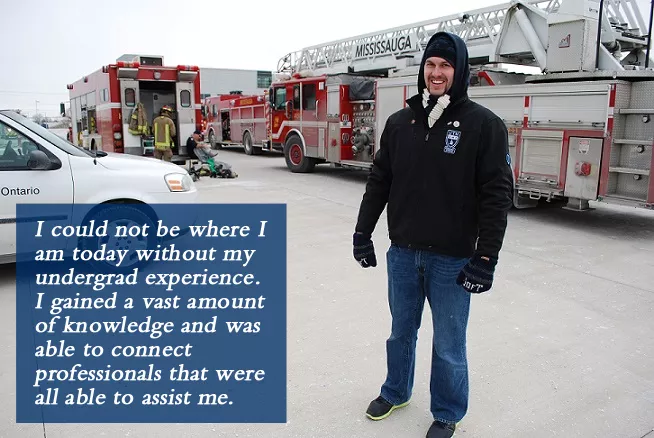
Forensic Technologist, Forensic Toxicology Section, Centre of Forensic Sciences (as of Dec 2014)
- My first interest with the field of forensic science came about due to the CSI effect. Like a lot of individuals the initial release of the television show CSI drew a large interest with the field of forensics. It didn’t take me long to realize that forensic science is not truly what they portray on TV. There are some similarities but there are a lot of differences. Having done research into the field I was not deterred in any way by realizing it is not like the hit TV show CSI. As I made my way through high school I realized that science was one of my fortes. With this in mind, and my previous knowledge of the field of forensics, I couldn’t think of a better way to apply my scientific knowledge than to the judicial system.
- When it came time to apply for schools that had a forensics program it ultimately came down to either UTM or the University of Ontario Institute of Technology (UOIT). Both had their sets of pros and cons, but when it came down to deciding, U of T is a world renowned university with an established forensics program when compared to UOIT. As difficult as the decision was to make, UTM was definitely the right choice.
- Since graduating in the summer of 2013, I have been fortunate enough to secure a job at the Centre of Forensic Sciences. I initially started out as a summer student in 2013 with the chemistry section. From there I proceeded to become a contract lab attendant with the chemistry section before securing fulltime position with the toxicology section as their lab attendant. Since then I have continued to move forward and I am currently a Forensic Technologist with the toxicology section. Though it has been a fast journey to become a technologist, I am still looking forward to reaching my ultimate goal of becoming a scientist within the Centre.
- My undergrad degree at UTM definitely benefitted me. Throughout the program I was provided with a number of different opportunities to network with a wide range of professionals within the forensics field. The staff are knowledgeable experts within their designated field and are always willing to assist and put in the time to help you succeed. Throughout my undergrad I gained a wide range of professional training such as interviews, presentations, and research which has helped me prepare and get me to where I am today.
- In part with the many professionals willing to assist me when needed, the internship course was the most valuable aspect of my undergraduate career. Throughout this course I was able to network with a range of forensic professional with whom I am still in contact. It also provided me with a much better understanding and a good back bone for conducting good research while following all the proper procedures and protocols. The internship portion of the program also allowed for me to work first hand with professionals within their fields. This was an excellent opportunity for me to continue to gain an understanding of different areas of forensics and what different professionals do on a daily basis. Lastly, and most importantly, this program helped develop me as a professional through aspects such as interviews and presentations.
- The faculty and instructors at UTM were excellent. They are all professionals within their field which allows for students to receive first hand training specific to their field of study. Not only are they professionals, but they are all willing to assist students and graduates in whatever way possible, whether it be course related or professional development.
- Ultimately I could not be where I am today without my undergraduate experience. I gained a vast amount of knowledge through my four years and was able to connect with a wide range of professionals that were all able to assist me in a different way.
Aaron Yu, HBSc.
Speciality in Forensic Chemistry (2018)
Aaron is an understudy to become a Forensic Specialist in Firearms for the RCMP National Forensic Laboratory Services in Surrey. As of 2022, he is training and learning everything he can about firearms so that he can do case work and help provide expert testimony. Test include identification and classification, trigger pull and shock discharge testing, bullet and cartridge case comparisons, bullet velocity and trajectory etc.
Why did you choose to pursue forensic science?
I’ve always wanted to pursue a career in the sciences, but didn’t like the idea of going the “research route”. I wanted to do something more practical where the day-to-day is different and I can apply what I know and produce results, rather than go down a rabbit hole. Believe it or not, I was never into the crime shows (and still aren’t), so my first exposure to this field was actually in Grade 5 when we had a forensic unit in science class. Fast forward to Grade 10 where we had to start planning for our future, and I remember the fun I had in those classes, looking at fingerprints and problem solving. I decided then to work towards a forensic career and never looked back since.
What have been some of your favourite experiences as a member of the forensic community?
After graduating from the program, I’ve stepped away from the community and only came back once I started my current position. I haven’t touched any casework, but because I’m an understudy, we have been given the green light to shoot firearms everyday. It’s really cool to say that I can wake myself up in the morning by firing a shotgun AT WORK.
What is your fondest memory of your UofT experience?
Any of the forensics labs were genuinely fun! Of course I dreaded the pre-labs and the write-ups we had to do, but in the moment, it was fun seeing latent fingerprints developing, or seeing the drugs we spiked into the blood show up. The mock cases we did was great as well.
Any words of advice for up and coming FSc students?
I’ve only completed one degree, but I can still say this is probably the most fun one to do! I will be realistic and say that the job opportunities directly relating to this field are quite scarce in Canada, but you really just have to apply to EVERYTHING. Forensics is the fun part, but the science is really what the employers would be looking at. Make sure you build a strong foundation there, get some general lab experience (whether it’s research or production based), and start building your resume.
Simon Liu, HBSc.
Forensic Chemistry Specialist, 2012
Simon graduated UTM's Forensic Chemistry Specialist Program in 2012. He remains active in the forensic science community and has secured employment in his field as a Forensic Identification Assistant for York Regional Police.
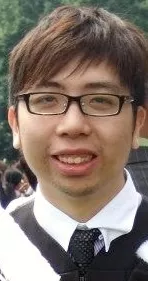
- I was initially interested in forensic science because I wanted to be in a field where I can apply scientific concepts in a practical way. As well, when I was young, I liked to solve puzzles and read crime stories, so I wanted to be in a career where I can apply my interests in a scientific way.
- I chose the Forensic Science program at UTM because I initially wanted to go to the University of Toronto due to its award winning researchers, education and facilities. As well, the Forensic Science program at UTM was the first in Canada, with many internship opportunities where we students can participate. During my visit at the Ontario Universities Fair, the one aspect that interested me for choosing this program was the presence of a specific coordinator that helps students look for internship opportunities based on our interests, instead of the students doing it alone. This feature was something that not all universities have. UTM is the only university in Mississauga as well, compared to the many universities that existed in Toronto. I foresaw that there would be plenty of growth and expansion from city funding and other sources, thus enriching the program. As well, the program is rooted in one of the most prestigious schools in Canada; interaction with a lot of forensic professionals was easier and gaining the necessary networks in employment possible.
- I am currently employed as a Forensic Identification Assistant at the York Regional Police. I was recently employed in many government organizations including the Canadian Coast Guard College, Passport Canada, Ontario Ministry of the Environment, and Service Canada. I am planning to continue in this career, hopefully advancing to more senior positions along the way. However, I am always looking for new opportunities to contribute in the field.
- The undergraduate degree in Forensic Science had benefitted me because it provided a dual path for me to choose from, either in the empirical science that I was specialized in or the forensics field. This allowed me to open more doors to different opportunities. As well, when you graduate from the University of Toronto, it makes you more competitive in the job market. This degree ensures that you know how to solve problems in any situation, have the appropriate presentation, thinking, and meticulous approach skills that are essential to any employment opportunity that you may encounter. Through the internship experience, I was able to land my first forensic interview, and publish my first journal article, which benefitted me in my career goals.
- The most valuable aspect of my undergraduate careers was the social interaction in the campus. This included the UTM Forensic Society. It is through this society that I was involved with many projects in the department such as the Murder Mystery Dinner, volunteering at the Crime Scene House, Meet and Greet Night with the TAs and professors, that I was able to know the faculty, instructors, the department and other students in the program. It is also through this social interaction that I was able to meet good friends. As well, I found out that I excelled in the accounting aspect of the forensics society and able to think of future projects which contribute back to the department The social interaction with the instructors was important because it allows me to be passionate about the field and to discover my career goals after I graduated.
- I travel two hours each way, with a total of 4 hours for a round trip to UTM every day. I would not be able to endure it for 4 years if it was not for the passionate faculty and instructors. The faculty and instructors were very accommodating in terms of office hours. If I email them in terms of any hours outside of their designated time, they were willing to accommodate it, with many choices for me to choose from. As well, their doors are always open, so if you have any last minute questions, they would answer them right away with no difficulty. Since UTM is one of the smaller campuses, there are fewer students so you get to know the faculty and instructors a lot more. As well, they are really passionate about their jobs, so they are willing to stay after hours during exam season to make sure that you do well in the course. They offer plenty of resources to understand the material and spark innovation in the content through materials, online tools, and extra office hours to keep us going through the course. This allowed me to see the different career paths that I can take after I graduate. The instructors are all from the field, from forensic pathologists to Forensic Identification officers. they able to bring their real-life experience in the lectures, making the education much more relevant and practical.
- The UTM Forensic program was a great program with great instructors, faculty, and a vast social, professional network. I did not regret of my decision of choosing this program, and thank you to all the people in the faculty and instructors that I had which have fostered my career goals.
Agata Gapinska-Serwin, H.BSc.
Forensic Chemistry Specialist, 2008
| Agata is the Laboratory Technician for Forensic Science & Chemistry at the University of Toronto Mississauga. |
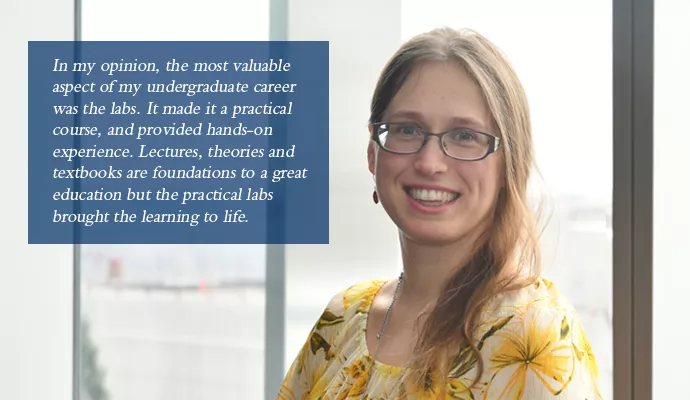
Agata Gapinska-Serwin is a graduate of the forensic chemistry program, and is currently working at the University of Toronto Mississauga as a laboratory technician. Specifically, she is in charge of the forensic identification labs as well as second-year chemistry labs. Agata is extremely happy with her current position, describing it as the "perfect marriage of my original career paths: chemistry, forensics and education."
- (When asked why she was initially interested in forensic science): It was the opportunity to bring the physical sciences/chemistry to a real world setting.
- The Forensic Science undergraduate program, at that time, was the only one available in Ontario. It was established with the help of the Centre of Forensic Sciences so I knew it was of high quality and calibre. Likewise, it was offered through the University of Toronto, which is a respected university. I knew that taking that program at UTM would set me up for the future.
- I believe my undergraduate degree in forensic sciences has benefitted me because it opened up two distinct pathways - one in the sciences, and one in forensics/police - or something that is a combination of both.
- In my opinion, the most valuable aspect of my undergraduate career was the labs. It made it a practical course, and provided hands-on experience. Lectures, theories and textbooks are foundations to a great education but the practical labs brought the learning to life.
- I was very impressed with the faculty and instructors. They were all currently working and excelling in their field. It was great to hear about their cases and related experiences. I had a lot of respect for them as they were truly passionate about their career.
 | |||||||||
|---|---|---|---|---|---|---|---|---|---|
| Go back |  |  |  |  | |||||
Sonya McLaren, HBSc., MA. Candidate
Forensic Psychology, 2019 (with High Distinction)
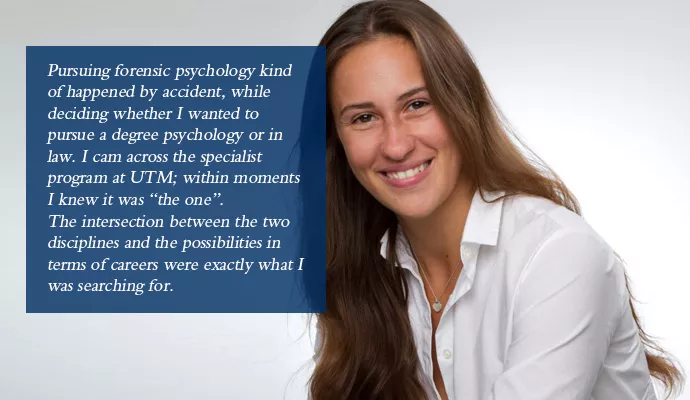
As of 2019, Sonya is an M.A. student at Carleton University in the Criminal Justice Decision Making Laboratory
Why did you choose to pursue forensic science?
Pursuing forensic science, and forensic psychology in particular, kind of happened by accident. I was deciding whether I wanted to pursue a degree and career in psychology or in law. While researching these two disciplines, I came across the forensic psychology specialist program at UTM. Within moments I knew it was “the one”. The intersection between the two disciplines, and the possibilities in terms of careers, were exactly what I was searching for.
What have been some of your favourite experiences as a member of the forensic community?
Some of my favourite experiences as a member of the forensic community has been the collaborative nature of the forensic sciences. It is so interesting and exciting when I get to learn from and collaborate with professionals in different forensic disciplines.
What is your fondest memory of your UofT experience?
My fondest memory of my UofT experience has to be my internship! I had my internship at the Centre for Addiction and Mental Health (CAMH) and had an amazing experience. I have continued to be in touch with my mentor from this internship, and have actually gone to prepare and (soon) present at the 2020 Canadian Psychological Assocition conference, as well as help prepare the manuscript for publication.
Any words of advice for up and coming FSc students:
Remain curious and keep asking questions.
Any other accomplishments or interesting information you'd like to share:
Being at a Masters student at Carleton, the opportunities are endless! I have been a co-author in a textbook chapter, have recently received an R.A. position for a project working with other provinces, and have a working research contract with a government organization. If any students have any questions or would like to chat about grad school, whether or not they are in forensic psychology specifically, I am always happy to chat! You can send me an email (sonyamclaren@cmail.carleton.ca).
Paige Holmes, HBSc., MASc. Candidate
Forensic Psychology, 2019 (with High Distinction)

As of 2019, Paige is working towards a Masters degree in Developmental and Communication Sciences at the University of Waterloo, with her ultimate goal of pursuing a Masters degree in Speech and Language Pathology.
Why did you choose to pursue forensic science?
During my application process for university, I was drawn to studying psychology as I was always curious about human behaviour and the “why” behind people’s actions. I ended up stumbling upon the UTM Forensic Psychology program by accident, and I thought it would be the right program for me because it allowed me to learn about human behaviour in the context of the legal system, which was another area I was interested in learning more about.
What have been some of your favourite experiences as a member of the forensic community?
I had so many amazing experiences as a forensic science student at UTM! I really enjoyed my experience with the Forensic Outreach program, which was a great opportunity because it helped to develop presentation and facilitation skills, while also allowing you to demonstrate your knowledge of forensic science. I was also one of the Public Relations Executives for IVNVI, UTM’s Forensic Society, which taught me so much about event planning, advertisement, and the importance of connecting with other peers in forensic science. Finally, although it was sort of terrifying, I can now think fondly of my Forensic Science Day presentation. Being able to present the culmination of eight months’ worth of work was such a satisfying feeling, and it was so rewarding to see our research being shown to forensic professionals.
What is your fondest memory of your UofT experience?
It may sound cliché, but my fondest memories have to be the people I met throughout my undergraduate degree. The classmates that I met during the first few weeks of first year have become some of my lifelong friends, and I think being in the forensic science program bonded us in such a deep and special way. I will also always remember the fun moments that we got to experience, such as the first IVNVI gala that we hosted and all the Outreach volunteer events!
Any words of advice for up and coming FSc students:
Don’t feel limited by what you choose to study in undergrad! Your career path may change, and you may find yourself wanting to pursue something that doesn’t fall within the field of forensic science. Most of what you take away from the study of forensic science can be applied to other areas, so make sure not to discount novel opportunities if they come your way. Also, make sure to take the time to practice self-care. Getting a degree is an important accomplishment, but neglecting your mental or physical health is not worth it in the end!
Amanda Marie Ferrari, HBSc.
Forensic Psychology (with High Distinction)
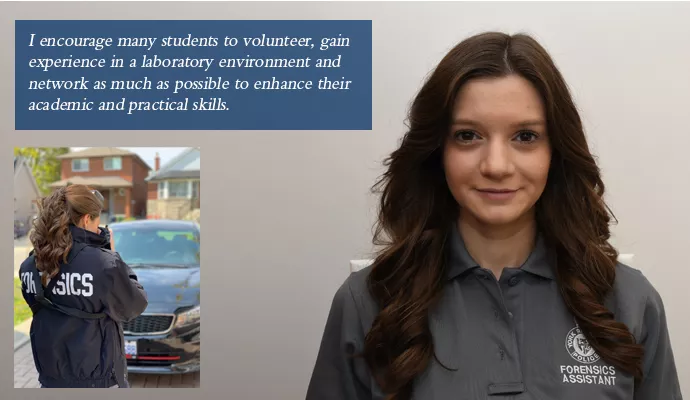
As of 2019, Amanda is a Forensic Identification Assistant with York Regional Police. Within this role, she liaises with investigators to obtain relevant information regarding the scene and develop a course of action to search, document, collect and preserve evidence. These high volume crime scenes include but are not limited to break and enter (residential and commercial), stolen/recovered vehicles, thefts, assaults and warrant executions.
Why did you choose to pursue forensic science?
At a very young age I had a passion for science and law. As I progressed through my academic studies I had developed a very keen interest in criminal investigations and science, particularly in biology and psychology. In my third year of university, I took an array of forensic identification courses, which further solidified my combined passion for both science and the law.
What have been some of your favourite experiences as a member of the forensic community?
Some of my favourite experiences as a member of the forensic science community include forensic night photography, out-reach community presentations and my internship with Toronto Police Service. In my third year, while taking the introduction to forensic identification course, students were provided with the opportunity to partake in a night photography session to refine their skills. Students were given hands-on experience of camera use and it’s various settings in order to capture as much of the scene as possible. This session gave students a chance to work collectively in teams, build connections and have fun! During my third and fourth year of university, I volunteered alongside a retired Forensic Identification Officer and current lecturer, Mr. Wade Knaap, to give presentations to high school and university students, as well as professionals in similar disciplines to enhance their understanding of the forensic science discipline. Within my fourth year of university, I was able to gain real-world research experience by working as a co-op research student with the Toronto Police Service- Forensic Identification Unit. I compared three chemical enhancement techniques in recovering latent fingerprint impressions from unfired cartridges. Although this research experience came with a rollercoaster of emotions and deadlines, I can honestly say that it did pay off in the end!
What is your fondest memory of your UofT experience?
My fondest memory of my UofT experience was in my third year working at the crime scene house and having the deer photo bomb my outdoor scene photos!
Any words of advice for up and coming FSc students
Although UofT is one of the many universities that now offers a degree in forensic science, my advice to anyone hoping to pursue a career in the field would be to obtain a degree in a core science. Forensic science is a very competitive field with limited opportunities for employment, however, if you are determined, focused and driven enough many career paths are available to you. I encourage many students to volunteer, gain experience in a laboratory environment and network as much as possible to enhance their academic and practical skills.
Any other accomplishments or interesting information you'd like to share:
After graduation, I was fortunate enough to have published my research article within the Identification Canada- The Art and Science of Forensic Identification issue. In October of 2018, I underwent mental and physical testing for a Special Constable certification and met the standards required by Applicant Testing Services. Recently landing my position as a Forensic Identification Assistant, I participated in an intensive three-week Scenes of Crime Officer training course and met the specialized requirements.
Rahul Gandotra, HBSc.
Forensic Psychology Double Major, 2012
Rahul Gandotra completed his forensic psychology degree in 2012 and is as of then was studying law at the University of Western Ontario. Rahul is the former Vice President for the UTM Forensics Society during his senior year as an undergraduate student.
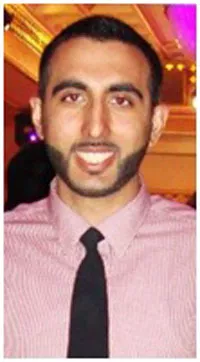
- Coming out of high-school with no real clue other than that I would be pursuing a science based degree, of all the programs I explored, Forensic Science was by far the most interesting. While it had a scientific basis and provided a healthy academic challenge, it also provided a wide array from which to expand both in terms of the courses offered and future career and education possibilities.
- I was drawn to the Forensic Science program at UTM as it was the most established program of the few being offered at universities in Ontario. Not only would there be an opportunity to get hands-on experience with the FSC481 internship, but I was confident I would be learning from both accomplished faculty, as well as experienced professionals practicing in the actual field. Along with the excellence of the Forensic Science program at UTM, as the program is quite interdisciplinary, the strength of the other faculties at UTM also made this program attractive.
- While I may not [currently] be in a program that many would think follows a degree in Forensic Science, the program has still been beneficial to me. By emphasizing a methodical, objective, and meticulous approach to acquiring and retaining information, my Forensic Science degree has helped me develop critical thinking skills which I can continue to use in new situations. It has provided me with a unique perspective as a foundation for my legal education.
- I would say the most valuable aspect of my undergraduate degree was the collegiate nature of the Forensics department. I believe this one aspect translated into the various highlights of the program. The limited enrollment in the program not only allowed for maximal interaction with instructors and TA's, but also allowed for a similar experience with other students, who go on to become not only your colleagues, but also some of your best friends. This fact encourages students to help each other out not only on a personal basis, but also by joining together as members of the UTM Forensics Society (IVNVI), to ensure fellow students are also given the same academic, social, and charitable opportunities as they are welcomed to the program and the university.
- The faculty and instructors associated with the Forensic Science program were second to none! From accomplished academics to veterans of the police services, the program attracted some of the best instructors available. This trend begins early with guest lecturers during the FSC239 - Introduction to Forensic Science course and continues on throughout the program. Being taught from leaders in their respective and practiced profession definitely provides for an extraordinary student experience.
- Even though Forensic Science may sound like a niche program, I would encourage students to explore it, and even apply for admission. While the program will provide students with a chance to complete various specializations, the analytical and critical thinking skills that develop from this program are much more valuable. These will be the skills that act as building-blocks that form the foundation for you to pursue whichever career or education path you choose at the end of your time at UTM.
 | |||||||||
|---|---|---|---|---|---|---|---|---|---|
| Go back |  |  |  |  | |||||
Nicole Novroski, HBSc., MSc., PhD.
Forensic Science and Biology Double Major
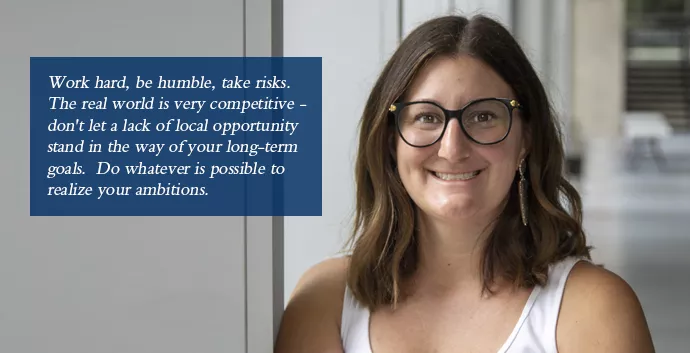
UTM's very own Dr. Novroski is also a graduate of our program! With a PhD in Molecular Genetics (2018), an MSc in Forensic Biology (2011) and an HBSc in Forensic Science and Biology (2009), Dr. Novroski is now the tenure track Assistant Professor and Forensic Geneticist at UTM in the Forensic Science Program - check out her website at www.nicolenovroski.com for more info!
Why did you choose to pursue forensic science? Forensic science is a field where you can apply your intellectual abilities to helping the community.
What have been some of your favourite experiences as a member of the forensic community? Collaborating with colleagues near and far, learning new skills, and really expanding my knowledge and understanding in disciplines outside of my own.
What is your fondest memory of your UofT experience? My friendships that I developed in the FSC program and through Residence Life were truly the best takeaways from UTM.
Any words of advice for up and coming FSc students: Work hard, be humble, take risks. The real world is very competitive - don't let a lack of local opportunity stand in the way of your long-term goals. Do whatever is possible to realize your ambitions.
Michelle Pflug, HBSc.
Forensic Science & Biology Double Major (2004)
MSc. (University of Florida)
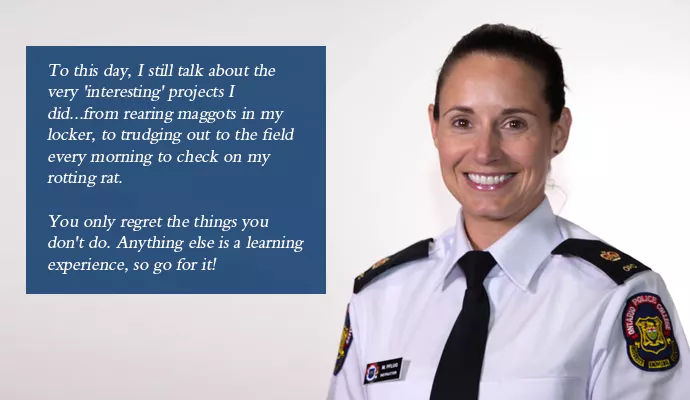
As of 2021, Michelle is an instructor in Forensic Identification and the Bloodstain Pattern Analysis Program Coordinator at the Ontario Police College, Aylmer. Her role as an instructor involves training Forensic Identification Officers across the Province in basic bloodstain pattern recognition, forensic scene examination and expert evidence. Michelle also trains the understudies as part of the College's Bloodstain Pattern Analyst Certification Program.
Prior to joining the College in 2019, Michelle was a Detective, Forensic Identification Officer and Certified Bloodstain Pattern Analyst with the Peel Regional Police since 2009. Her duties as a CBPA included attending, documenting, and analyzing various bloodletting scenes and evidence, preparing BPA reports and presenting expert testimony in court. As a Detective, she was responsible for training and supervising a platoon of 6 officers. As an Identification Officer, she investigated various incidents including sudden deaths and crime scenes, documented and collected evidence including fingerprint, footwear & tire mark impressions, biological and physical evidence, recorded crime scenes and evidence with notes, photographs, video, and sketches, compared physical evidence against known samples or impressions, prepared evidence reports and presented expert testimony in court.
Why did you choose to pursue forensic science?
My father was a police officer with the RCMP and I was always fascinated by crime scene investigation and DNA analysis.
What have been some of your favourite experiences as a member of the forensic community?
Mentoring UTM and other students. Since I started working for the PRP Forensic Identification Section, I have had 10 or so students come through the program (with either the PRP or the OPC). I enjoy the research and keeping in touch with the up and comers in the field. A few of my students have pursued careers in policing and I have been able to help them along the way.
What is your fondest memory of your UofT experience?
I'm not sure about fondest, but to this day, I still talk about the very 'interesting' projects I did as part of my Forensic Entomology course. From rearing maggots in my locker, to trudging out to the field every morning to check on my rotting rat, to visiting the local Orkin lab to beg them for samples of different insect families for my collection and then yelling out in the cafeteria that 'I had crabs' to trade!! Staying up all night prepping for the final FSC Day presentation. 3rd year trip to Chicago for the AAFS Conference was definitely a highlight but my fondest memory is probably the late (or all) nights studying with my friend Jessica.
Any words of advice for up and coming FSc students:
You only regret the things you don't do. Anything else is a learning experience so go for it!
Any other accomplishments or interesting information you'd like to share:
Michelle was featured in BlueLine magazine as one of Peel's three Bloodstain analysists! Read the article here: https://www.blueline.ca/peels-third-bloodstain-pattern-analyst-receives-certification-6118/
Judy Chin, HBSc.
Forensic Science & Biology/Anthropology Double Major
Judy is a Forensic Scientist specializing in the Firearms and Toolmarks Unit in the Physical Sciences Section at the Centre of Forensic Sciences.
Why did you choose to pursue forensic science?
During high school I wanted to be either a doctor or a lawyer. I was introduced to Forensic Sciences as an up and coming field. In my time, influential television shows included X-Files, DaVinci Code and Columbo. I did a Co-op semester at the Office of the Chief Coroner which opened my eyes to many of the disciplines available in Forensic Science.
What have been some of your favourite experiences as a member of the forensic community? My favourite experiences in the forensic community stem from the feeling of contributing to public safety. My earliest grand experience was participating in the Pickton Crime Scene with the RCMP in British Columbia. Other fond experiences include working for Ultra Electronics Forensic Technology, attending a variety of Forensic conferences (different disciplines), training as a Firearms Examiner with the RCMP and being a member of the Association for Firearms and Toolmark Examiners (AFTE). The forensic community is a vast family. Many of the people I have met or worked with in past have come through my circle again either professionally or socially. It is such a great feeling to be involved and connected to so many professionals that share the same goals.
What is your fondest memory of your UofT experience? My fondest memories of UofT were during my involvement in student life as a part of the UTM Athletic Council (UTMAC) as President and Director of Interfaculty Sports – Women’s. This included being a voting member of the Council of Athletics and Recreation (CAR) and subcommittees, UTM Governing Council for Athletics, Wellness Centre Project Committee, Erindale College Council (ECC) and Quality of Student Services (QSS), among others.
Any words of advice for up and coming FSc students:
My advice for students pursuing Forensic Science as a career is to get involved, expose yourself to many disciplines and agencies and do not limit yourself in your opportunities. Move, volunteer, work, go to conferences or get another degree from another country. These are the type of opportunities that could separate you from the masses and you will gain experiences worth a lifetime.
- Speak to your professors: I was notified of a job opportunity through one of my professors as she was a lead expert in the case.
- Consult with the career centre: I received great feedback on my resume from the career centre and while there saw a job posting that started a new train for my career path.
- Speak to experts in person (lecturers/conferences): developing a network of professionals is a strong way of getting information on the field.
- Get involved in Research.
Any other accomplishments or interesting information you'd like to share:
I am currently a voting member of the Association of Firearms and Toolmark Examiners (AFTE) as well as I have joined the Research Design Advisory sub-committee.
Bradley Dafoe, HBSc., M.Sc.
Forensic Science & Biology Double Major
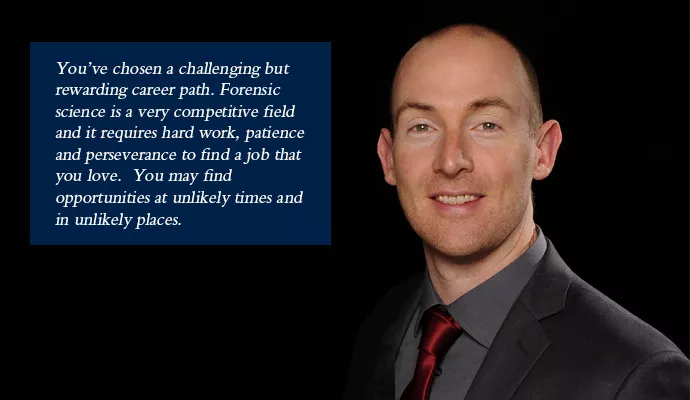
Brad is a forensic scientist in the toxicology section at the Centre of Forensic Sciences in Toronto. After his undergraduate degree, he completed a Master of Science in Forensic Science at the University of Strathclyde. According to Brad, "I will be showing my age with this answer but there were no specialties when I was attending UTM!"
Why did you choose to pursue forensic science?
As far back as I can remember, I always wanted to be a scientist. Science courses were always some of my strongest in school. In the later years of high school, I also took an interest in law enforcement and had thoughts about applying for the RCMP. My guidance councillor suggested that I look into forensic science program at the U of T. This was back in the late 90’s before there was the explosion of forensic science onto mainstream media and popular culture so I didn’t know a lot about what forensic scientists did. After I did a bit of research, I was fascinated. It sounded like an interesting and amazing career path.
What have been some of your favourite experiences as a member of the forensic community?
I have been fortunate enough to work in several different forensic science organizations and have met many people that share my passion. There are so many experiences to choose from but the one that stands out was working on an Innocence Project case during my time at a private forensic DNA laboratory in Texas. I was able to attend the exoneration hearing of an individual who was wrongly convicted and spent 19 years in prison. DNA analysis work done by my team was integral in this exoneration. It was an emotional moment for the person being released, their family and almost everyone in the courtroom. It really brought home the importance of what I do and how it can change lives.
What is your fondest memory of your UofT experience?
There were so many fond memories! Meeting new people coming to UTM from the across the province (and country), late nights studying and goofing off with friends in the lab or library or south building (wherever we could find a spot) and a few late Thursday nights not studying at the Blind Duck.
Any words of advice for up and coming FSc students:
You’ve chosen a challenging but rewarding career path. Don’t be discouraged if you aren’t able to find your dream job right away. Forensic science is a very competitive field and it requires hard work, patience and perseverance to find a job that you love. You may find opportunities at unlikely times and in unlikely places. Your goals and interests may also change over time. Take me for example; I spent 14 years in various Forensic Biology laboratories and now I’m in Forensic Toxicology!
When you find a job that you love, don’t lost sight of the bigger picture. The day-to-day duties of working in an operational laboratory may shrink your focus and be somewhat isolating. It’s important to remain unbiased as a forensic scientist but it’s also important to be reminded of how your work is an important part in the overall contribution to public safety and criminal justice. I recommend that you attend some trials if you aren’t testifying regularly in your role, speak with investigators and attorneys and participate in conferences and workshops where you can meet other scientists who share your interest and passion.
Jocelyn Huang, HBSc.
Forensic Science & Biology Double Major
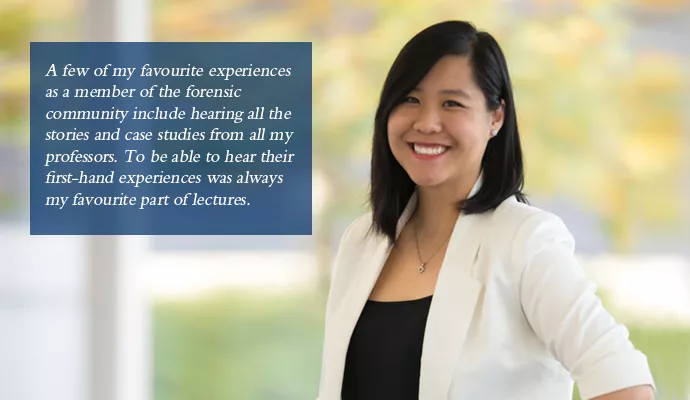
Jocelyn is a community educator at YouthLink Calgary Police Interpretive Centre. She works closely with the Calgary Police Service to bring knowledge to the public on topics such as policing and forensic science. Volunteering with the Forensic Outreach Program has given her many prerequisites for this job and has helped prepared her for many aspects of it.
Why did you choose to pursue forensic science?
I chose to pursue forensic science because it allowed me to continue pursuing biology, but with a twist. Like many other students, I may have had influence from a number of forensic science TV shows to peak my interest in this field; but then after pursuing forensic science, it was very eye-opening to see the differences and real-life applications.
What have been some of your favourite experiences as a member of the forensic community?
A few of my favourite experiences as a member of the forensic community include hearing all the stories and case studies from all my professors. To be able to hear their first-hand experiences was always my favourite part of lectures.
I also had the chance to be the Vice President of the IVNVI Forensic Society in my final year which was extremely rewarding and a great learning experience. As a team, we were able to hold the first of many events, including the first ever IVNVI Forensics Gala. Along the way, I gain invaluable skills such as communicating in a professional manner with a variety of audiences, working as a team, diligence, as well as leadership. I continuously employ these skills into my workplace.
Lastly, my time as a Forensic Outreach volunteer has absolutely enhanced my university experience. It was a chance for me to practice my skills that I have learned in my classes, as well as apply them to different situations in the form of teaching high school students and bringing forensic knowledge to families at open houses and university fairs.
Any words of advice for up and coming FSc students:
Don’t be afraid to get involved! Whether it’s becoming a general member of the IVNVI Forensic Society and attending their events, choosing to become an executive member or a year rep for IVNVI or volunteering with the Forensic Outreach program. These opportunities, among many others, will not only give you so many chances to learn, but to also help build connections with your peers and professors.
Some words of wisdom I've gotten in my undergrad is that there is no right track. Your goals will change over the years and sometimes going with the flow is the best way to go. Things will always work out in the end.
Rebekah Jacques, HBSc., M.D., F.R.C.P.C (AP&FP)
Forensic Science & Biology Double Major
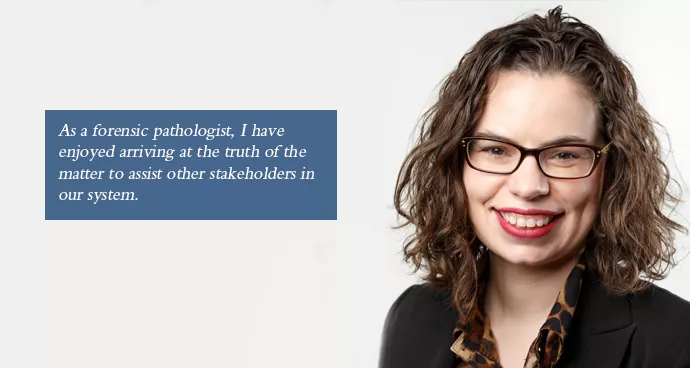
About Rebekah's undergraduate direction:
Why did you choose to pursue forensic science?
What have been some of your favourite experiences as a member of the forensic community?
What is your fondest memory of your UofT experience?
Any words of advice for up and coming FSc students:
Find your passion, model success and try to maintain your curiosity about your pursuit of knowledge as you proceed throughout your career.
Sandeep Randhawa, H.BSc., M.Sc.
Forensic Science & Biology Double Major, 2011
Sandeep graduated from the Forensic Science program and is now pursuing a Master of Science degree at New York University, specializing in oral biology. She hopes to obtain her Doctor of Dental Surgery Degree and specialize in forensic dentistry.
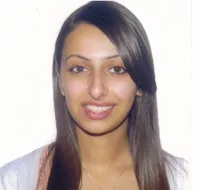
- I was originally admitted into the Psychology Program at UTM. I came to learn about the Forensic Science program after meeting with Ms. Teresa Cabral. I was excited to hear that applications for the Forensic Science program started in second year. So in my first year I had taken all of the required courses. The first year Forensic Science course had introduced students to many areas in Forensics. One particular lecture that I was interested in was Forensic Odontology. From there I had chosen my path, which will hopefully lead to becoming a Forensic Dentist!
- I chose the Forensic Science program at UTM because it offered an Honours Bachelor of Science degree from an internationally recognized university! The Forensic Science program at UTM was one of the first to be established in Canada. Learning about the different courses that were offered along with the different fields of study and the different outcomes of this program, captivated me even more towards this field.
- The Forensic Science program has benefitted me in many ways. The Internship in Forensic Science has not only helped academically, but also prepared me for the real world! I had procured skills in professional practice and research, which are very important for future studies. Every interview I go to, I think back to FSC481! The mock-interviews, setting up resumes and letters, is not something that is usually taught in university, but I was thankful to receive feedback on what I did wrong and what I needed to work on to successfully apply that to job/graduate school applications.
- The most valuable aspect of my undergraduate career was getting involved in student organizations such as the Pre-Dental Society, UTM Red-Cross, the UTM Forensic Society and other cultural organizations, where I had a chance to volunteer and interact with other students.
- The faculty within the Forensic Science program is full of well-trained, experienced professionals varying in many specialties. This allows students to get familiar with many fields within Forensic Science. The professors were very passionate about their work and were willing to share their experiences with students during lectures.
- This program has introduced me to my future career. I believe enrolling into the program will open a lot of doors for students, whether [they] want to go into medicine, dentistry, pharmacy, research or become a police officer or even further training in forensics.
Heather Merk, H.BSc.
Forensic Science & Biology, 2004
As of March 2015, Heather works at the Syngenta Breeding Academy, in Professional Development.
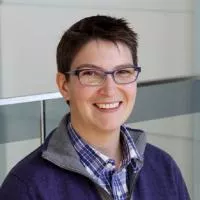
- I’ve always been a very curious person who loves solving puzzles. As well, I have a strong innate sense of justice, so saw a career as a Forensic Identification officer with the RCMP as a good fit for me. However, life has taken me through many twists and turns, and though I am still fascinated by Forensic Science, I don’t identify as a Forensic Science professional.
- At the time I was finishing high school, UTM offered the only Forensic Science program in Canada, so for me, the decision was a no-brainer.
- I currently lead a technical professional development for plant breeders at Syngenta, which is a Swiss agricultural company, and clearly a big shift from Forensic Science! My career path has been, and continues to be, a serious of twists and turns as I see new opportunities and challenges arising and I encourage everyone to pursue their passions. I am passionate about applying science to the benefit of society (a common theme in both plant breeding and Forensic Science), as well as science communication and education.
- How did I end up at Syngenta? During my mentorship with the RCMP in 2003/2004, I had a fabulous mentor who strongly encouraged me to consider pursuing a graduate degree. Several faculty at UTM also helped guide me toward pursuing a PhD in the US, where the funding opportunities were much brighter. I earned my PhD in Genetics from Penn State in 2010. After completing my PhD, I landed a position as a program manager at Ohio State. In that role, I was responsible for providing continuing education and professional development in plant breeding as part of a USDA funded grant project. In 2012, I joined Syngenta to build out a new professional development program within the company called The Syngenta Breeding Academy. With the Academy, I have the opportunity to travel the world to provide continued training for Syngenta’s plant breeders and absolutely love it!
- There is no obvious connection between my degree in forensic science and my career post-graduation from UTM. However, I learned a lot about science, scientific research, and communication of science as an undergraduate student in the forensic science program. I had my first experiences as an applied scientist during my mentorship with the RCMP and my passion for applied science has been a common thread in my career. All of these experiences have shaped who I am as a person and a professional.
- For me, the mentorship I received from UTM faculty and my mentor with the RCMP was instrumental in my early development as a professional. This included encouragement to participate in professional associations (AAFS), explore opportunities in graduate school, and work as a facilitator at the UTM Academic Skills Center.
- I regularly interact with faculty and instructors from a number of universities and can confidently say that the faculty at UTM are some of the best in the world
